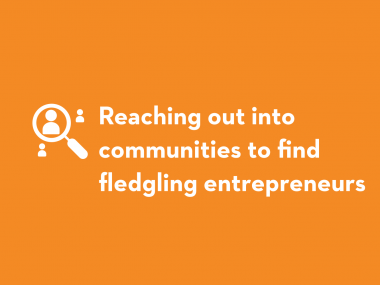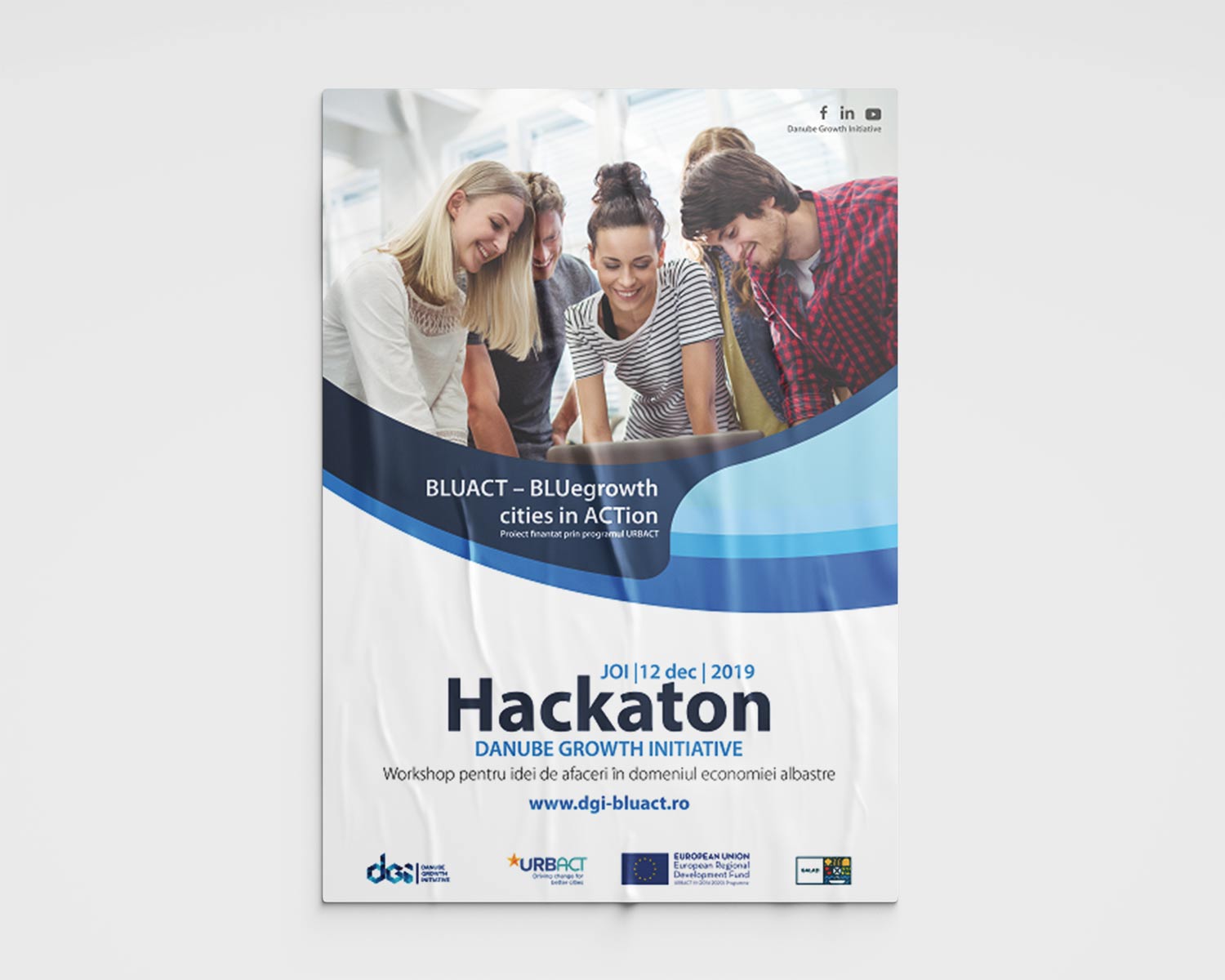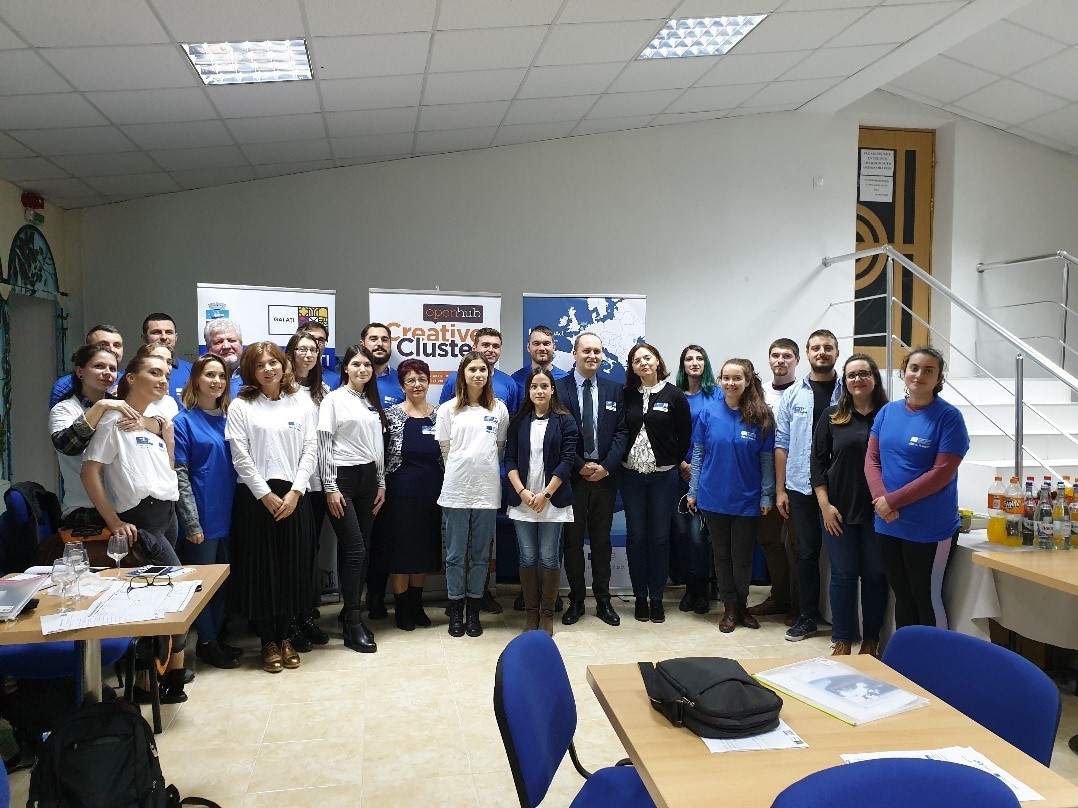Reaching out into communities to find fledgling entrepreneurs
Edited on
30 March 2021Business Plan Competitions are essentially a contest where business plans, submitted by aspiring entrepreneurs, are compared, and judged, according to a set of criteria published prior to the launch of the competition. Winners go on to receive incubation and business support to help them set down strong roots in a particular locality, grow and employ more people.

An article by Jim Sims, Lead Expert for the BluAct Transfer Network
Across the whole of Europe, cities are striving to stimulate new business ideas, to strengthen their economies and add value to their business base. One of the ways cities can renew their business base and stimulate new businesses is through the organisation of an annual Business Plan Competition.
Business Plan Competitions are essentially a contest where business plans, submitted by aspiring entrepreneurs, are compared, and judged, according to a set of criteria published prior to the launch of the competition. Winners go on to receive incubation and business support to help them set down strong roots in a particular locality, grow and employ more people.
In simple terms, the overall aim of such competitions is to get aspiring entrepreneurs to explore new business ideas and start-up their own company, which has the potential to generate significant growth and create sustainable employment.
In response to this challenge, a group of seven port cities from across Europe are collaborating on organising a series of Blue Growth Entrepreneurship competitions, designed to stimulate the marine and maritime economy.
The BluAct Transfer Network
The BluAct Transfer Network is a network of 7 European port cities (Piraeus, Mataro, Ostend, Galati, Matosinhos, Burgas and Salerno) that came together to transfer a good practice in Blue Economy Entrepreneurship which has been developed by the city of Piraeus, in Greece, (the Piraeus’ Blue Growth Initiative) to the remaining six other cities.
The network, which is supported by the Urbact Programme, aims to support an improvement and transfer of a good practice in the field of Blue Growth innovation and entrepreneurship.
The transferring cities are able to adapt the Piraeus Good Practice to suit their particular economic conditions and circumstance. In the case of Piraeus, the competition is now so well established, that a simple call for proposals generally elicits a positive response from the market, with a good number of businesses applying to take part in the competition.
But what of the cities with low levels of ‘naturally occurring’ entrepreneurship, in less developed economies? How can they adapt their situations to ensure their competitions are successful? Let’s look at how two such cities have adapted the good practice, to ensure it adds value to their local economy.
Community Outreach and Ideation
One way to ensure a city has a good number of applicants for a Blue Growth Entrepreneurship competition is to go out into the community and generate some ideas. Generally speaking, this process needs to be structured around ideation events.
In the case of Burgas, in Bulgaria, and Galati, in Romania, these two cities collaborated with their research community and local businesses to organise a series of hackathons, to generate entrepreneurial ideas to feed the Business Plan competition.
As Mariya Burulyanova, the Urbact Local Coordinator in Burgas says, “Hackathons were a very useful process for us to get out into the community and stimulate some potential business ideas. By bringing together different members of the community together to develop some ideas for future business propositions, we were able to boost the number of applicants we had fir our blue growth entrepreneurship programme.”
She continues, “The process was also useful in terms of ‘matchmaking’ between different stakeholders and important local decision-makers for their future cooperation and stimulating local entrepreneurs to develop and present their innovative concepts, related to the Blue Economy. For the University ‘Prof.D-r Asen Zlatarov’ the process helped them establish good professional relations with the business organizations and other members of the Urbact Local Group. The university plans to keep the good practice implemented within the project, continuing the organization of future hackathons, devoted to Blue Economy cooperating with Port of Burgas, CEIB Burgas and ICT Cluster Burgas strengthening the contribution to the Blue Economy.”
In the case of Galati, this approach elicited 20 applications, the highest of all the number of applications received across the BluAct Network. Ideas included;
- A process for decontaminating ballast water using cold plasma
- A boat cleaning debris floating on the Danube Galati and Braila City
- An application that monitors the fishing cycles, the available fish species and facilitates the payments of the permits
Hackathons are not the only types of activities that can generate business ideas from the local community – there are literally hundreds of ideation techniques that can be used (for example innovation labs, innovation sandboxes, skunkworks, hackathons, competitions, Service Jam’s, etc.)
Ideation is the creative process of generating, developing, and communicating new ideas, and comprises all stages of a thought cycle, from innovation, to development, to actualization.
However, one of the challenges of these kind of ideation activities is that they don’t always generate ‘oven ready’ businesses ideas and can create some ideas which are fairly theoretical.
In response to this issue, its vital that cities think about how best to organise structured processes ‘beyond the ideation phase’ to support the ideas that are generated to ensure they progress into formal businesses.
For example, some cities in particular, have designed structured start-up programmes to support this process, guiding participants through the concept development stage, into venture selection and business plan preparation.
This is where the cities of Galati and Burgas are now focussing their efforts, to convert the great ideas they have generated into viable businesses.
More information
To find out more about the BluAct Network, visit bluact.eu


 Submitted by Angelos Ploumis on
Submitted by Angelos Ploumis on
